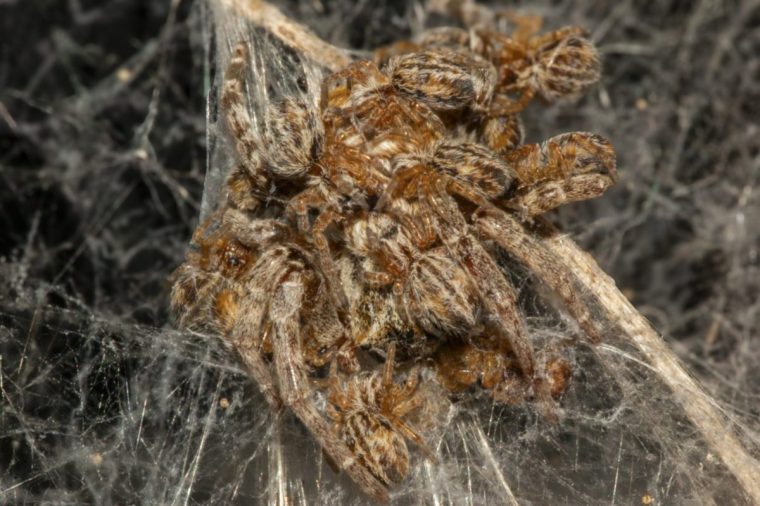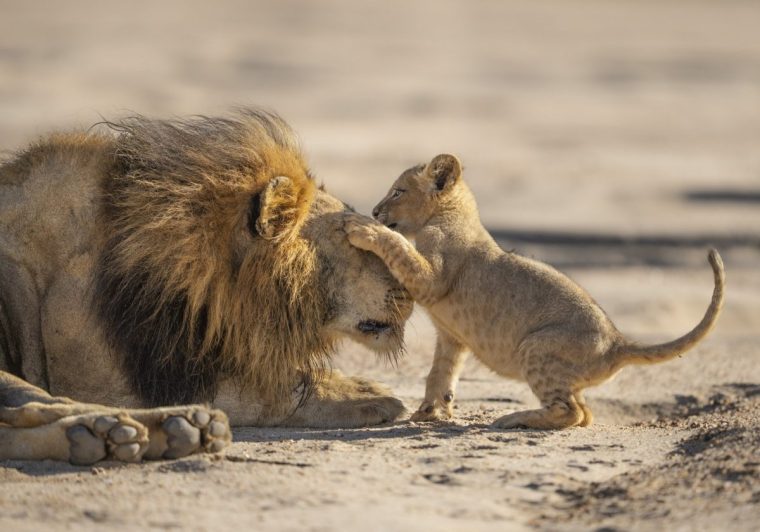The series opens with hundreds of spider babies eating their mother – but Attenborough is unshockable
One of the never-before-seen animal behaviours shown in some detail in Sir David Attenborough‘s new natural history documentary Parenthood is the “matriphagy” of the African social spider. Don’t know what “matriphagy” means? Let me explain.
We join a female African social spider just days after her brood of 30 spiderlings have hatched in their nest in the Namibian desert. For a short spell, these tiny eight-eyed horrors live off liquid regurgitated by mum, drinking it directly from her mouth. Then the kids move onto solids – the insects caught in their nest. And then they eat their dear old mum – who has been weakening since giving birth – alive.
“Hers is the ultimate sacrifice,” says Attenborough, smoothly. “Born out of the need to ensure the survival of the next generation.” I guess Attenborough, whose career has spanned more than 70 years, can no longer be shocked.

And that’s not the worst of it: these little abominations hunt in packs. Hundreds of them (mum shared the nest with 50 sisters) go synchronised stalking, moving and freezing in unison – it’s the stuff of nightmares. And the sound! My God, the sound.
I dare say the African social spider (and I’d really hate to meet the anti-social spider) has its devotees – after all, it takes all sorts (there are apparently even people who like Mrs Brown’s Boys). But were the species to entirely disappear overnight, I would not shed a single tear.
Fortunately this episode, the first of five, has plenty of non-arachnid wildlife. We hang out with a Western lowland gorilla and her newborn in Gabon. There’s a beautiful shot of the hours-old infant, dozing against his mother’s chest as she cradles him, instinctively grabbing her fur and tightly closing his tiny fist.
We watch a litter of lion cubs in Botswana gathering around their wounded and dying mother. Her sisters will look after the orphans. A boxer crab – “one of the ocean’s most ingenious parents” – demonstrates a resourceful method of self-defence. A breeding pair of burrowing owls work together to raise a clutch of chicks. There’s an extraordinary sequence shot at night using military-grade infrared cameras showing a hippo and her calf being menaced by a pride of lions in thickets of dark, dense grass in the Tanzanian bush.

Using footage from 58 shoots undertaken in 23 countries, the BBC says this is its first wildlife documentary focusing on parenthood and parenting behaviours rather than on animal young. If the script isn’t always the sharpest – “parenthood is a journey like no other,” Attenborough says at one point – it really doesn’t matter when the visuals are this good.
We visit an abandoned barn in Andalusia, southern Spain, where three generations of the endangered Iberian lynx are raising their young together. If there’s a more photogenic creature than this slinky, stylish yellow-eyed cat with its big tufted ears and its silky coat, then I don’t know of it. The local farmers have, in the last decade, changed their working practices to better suit the native wildlife and it seems to be working. “We are beginning to understand that it’s possible to use our world for our needs whilst also providing for wild animals,” says Attenborough.
The Iberian lynx is the rarest of the animals shown in this series. These charming – unless you happen to be a rabbit – cats are doing better now but at the start of the 21st century there were precisely 94 of them. Ninety-four gorgeous Iberian lynx but countless gazillions of African social spiders. Where is the justice?
‘Parenthood’ continues next Sunday at 7.15pm on BBC One
